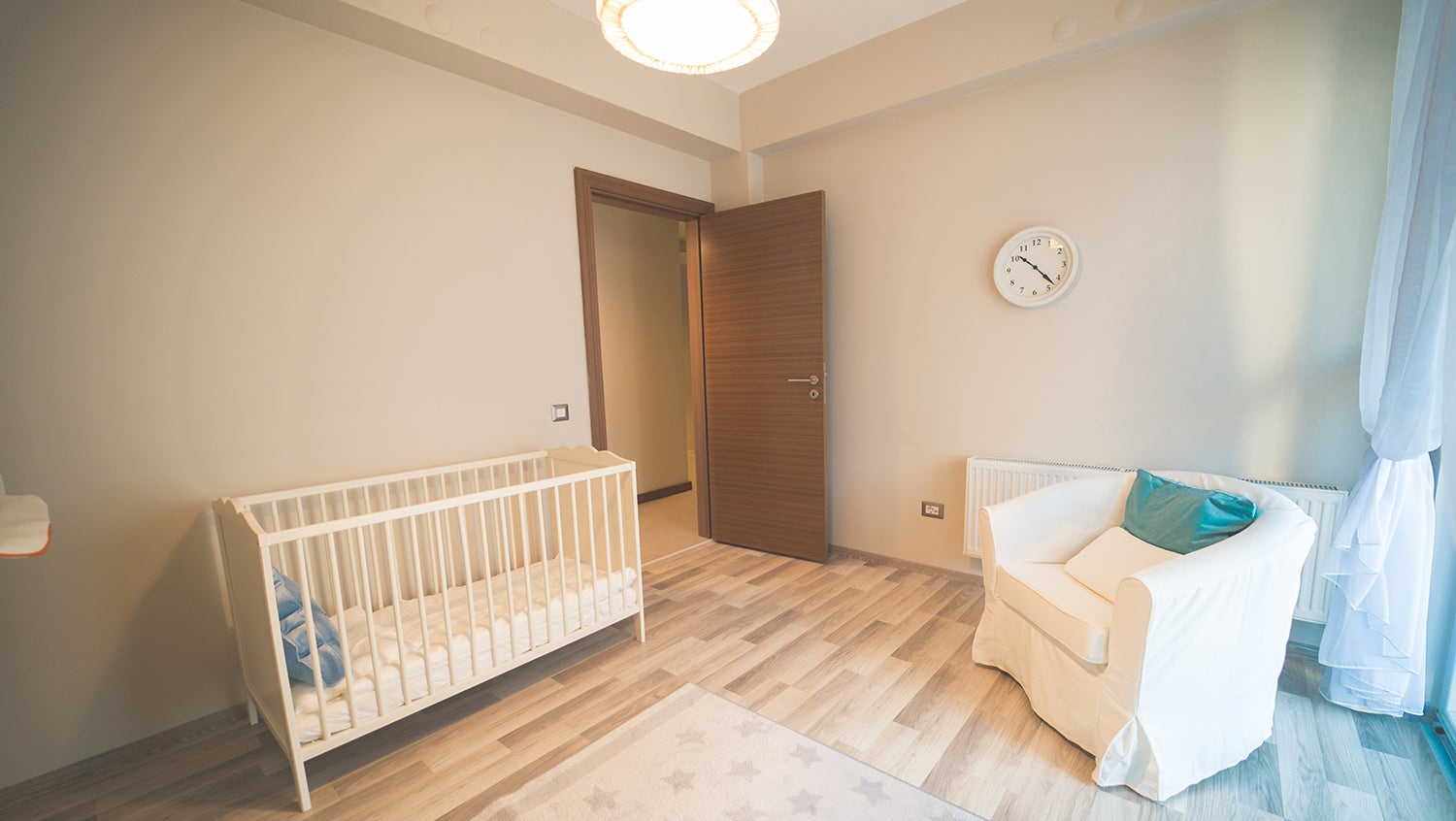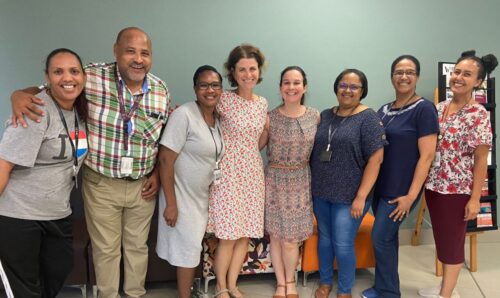
Getty Images
An internist and her frontline husband anxiously balance work and the health of a growing family during the pandemic
Accustomed to the busy thrum of the internal medicine clinic at Boston Medical Center, Lucy Schulson, MD, MPH finds it difficult to adjust to working in the eerie quiet of her house. She misses her colleagues and her patients, but she has a constant reminder she is not alone: Schulson is 38 weeks pregnant with her first child.
Pregnancy in the COVID-19 pandemic is a harrowing experience. So much is still unknown about the new virus and how it affects pregnant women and newborns. As a physician-researcher, Schulson pores over the limited data looking for clues. Is there a particular risk to the respiratory system in COVID-positive pregnant women? Can the virus pass through breastmilk?
Another unknown are ever-changing hospital policies on delivery. Many hospitals, including the one where Schulson will deliver, are requiring that support partners self-isolate two weeks before delivery. This is a particular point of stress for her and her husband — he is a pulmonary and critical care specialist at Massachusetts General Hospital and is currently on the front lines of the Boston’s COVID surge.
“He really can’t step back. This is a disease where pulmonologists and critical care doctors are just so critical,” Schulson explains.
As healthcare professionals and expectant parents both, Schulson and her husband have been carefully watching New York City’s COVID response to prepare themselves for the surge in Boston. They are particularly connected to New York, meeting as medical students at the Icahn School of Medicine at Mount Sinai. They watched aghast as healthcare workers at Queens’ Elmhurst Hospital, a safety-net hospital they both trained at, scrambled to care for patients without enough personal protection equipment (PPE). Hospitals in Boston seem well supplied with N95 masks, gloves, and gowns. But with local news reports regularly updating the large numbers of medical workers sickened by the disease, the risk of infection remains an ever-present worry.
“We feel a bit more comfortable because we know he has really good PPE, so that’s helped a lot, but there’s so much that’s unknown about transmission,” says Schulson.
Every evening, Schulson’s husband performs the same protocol familiar to frontline clinicians across the country right now, immediately removing his scrubs, disinfecting the doorknobs, and showering. The couple were also sleeping separately for a while, but ultimately it was just too sad. Schulson wanted her husband to feel the baby kicking at night.
Her husband will continue on in an administrative role that will allow him to work from home two weeks before her due date in May in order to comply with the self-isolation requirements for support partners. However, pregnancy is not a predictable condition, and Schulson is just hoping that she makes it to term.
With so much unknown, Schulson has had to identify a friend who can serve as a back-up support partner in case her husband falls ill or the baby comes early. Finding extra support in the pandemic isn’t easy, and Schulson became acutely aware of the fragility of her particular situation. Both she and her husband’s parents are socially distancing in faraway states, and most of her close friends in the area are also physicians dealing with the COVID surge in various capacities.
“I don’t think my mother has completely come to terms with the fact that she won’t hold her grandchild after she is born. She is 70 and lives in Chicago, and it isn’t safe for her to come right now,” says Schulson.
Schulson has been working from home since early March when her colleagues revised her role to protect her and her baby from coronavirus exposure. Her clinic has also reduced in-person care to protect patients from infection. Instead, she spends her days providing counsel to her patients via telehealth, helping them manage their chronic conditions and keep them out of the hospital.
“I feel guilty that I’m not out there on the front line. That’s been something I’ve really had a hard time with, especially because I’m an internist and I am hearing stories of pediatricians and radiologists, people who aren’t trained in internal medicine, becoming hospitalists. It has been hard for me to recognize that I’m not going to be a part of this fight right now,” she reflects. “In some ways this is my first test as a mom. I’m putting my baby first, and that’s ultimately what I think is going to be a lot of what motherhood is.”
Through all the fear, stress, and sadness, Schulson and her husband find solace in putting the finishing touches on the nursery to prepare for their daughter’s arrival.
“This is a scary time for everyone, and it’s scary to bring a baby into this world, but it has also brought us a lot of joy to think about her,” says Schulson. “She is a reminder that we will get through this and that there is hope. She brings us a lot of hope.”


